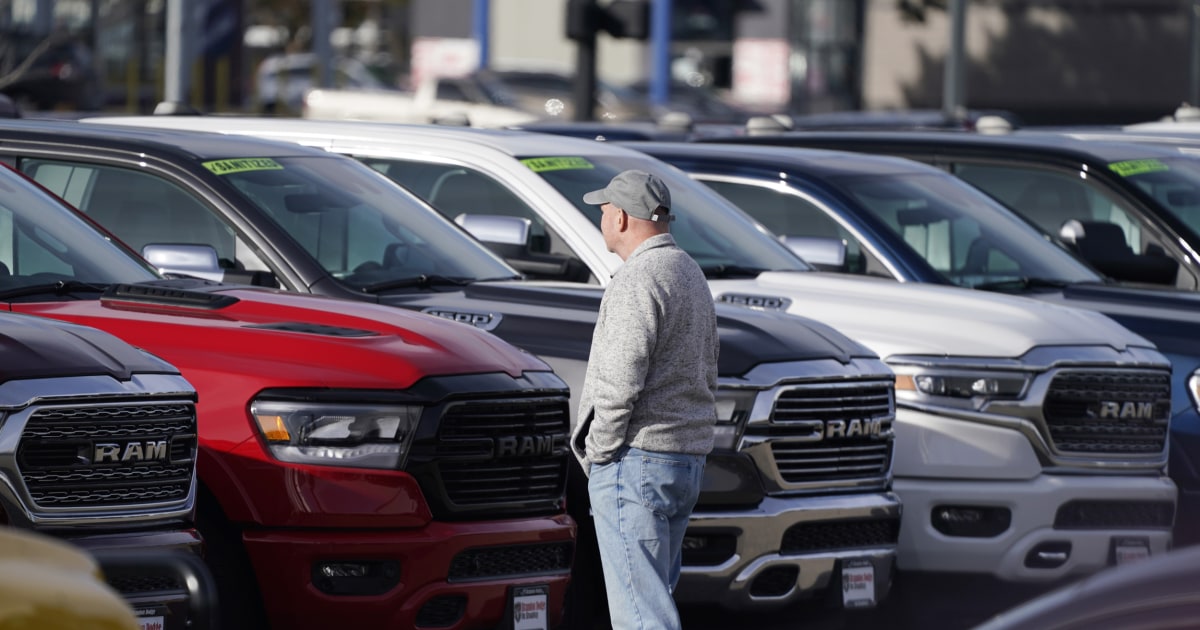
What was on course to be the U.S. auto industry’s worst year since the Great Recession ended on a surprisingly upbeat note, with car and truck sales rebounding sharply as 2020 came to a close.
Sales for 2020 are expected to come in at around 14.5 million, according to industry analysts. That would be down 15 percent from the 2019 total of 17.1 million vehicles — but it is significantly better than the 10 million to 12 million some experts forecast last spring.
“What looked like the most horrible year for the industry turned out really well,” said Jack Hollis, senior vice president of automotive operations at Toyota Motor North America.
The rollout of the vaccine should bolster consumer activity and "enable consumers and businesses to return to a more normal range of activities, lifting the job market, consumer sentiment and auto demand,” General Motors Chief Economist Elaine Buckberg said in a statement.
On the flip side, political turmoil, worsening Covid-19 infection rates and other concerns could yet weaken the economy and the car market, observers cautioned.
The industry hit a low point in March and April when much of the country went into lockdown and most U.S. dealers were ordered to close showrooms. But the industry quickly adapted, said David Christ, general manager of the Toyota Division at Toyota Motor North America, by turning to online sales and contactless deliveries.
“If this pandemic did one thing for the industry, it was to push us farther and faster into online sales," Christ said during a conference call on Tuesday. Fully 90 percent of Toyota’s buyers conducted at least part of the purchase process online in 2020, with 10 percent never setting foot in a showroom. The industry, overall, reported similar numbers. “We think…the shift…will continue to grow,” Christ added.
Other factors helped buoy the U.S. car market, especially during the fourth quarter. Some mass transit users decided to shift to personal vehicles, and people escaping town chose a road trip in order to avoid the pandemic-related risks of flying or traveling by train.
One thing Covid did not impact was the ongoing shift from passenger cars to the light trucks that generated three-quarters of U.S. new vehicle sales in 2020. A number of manufacturers began pulling out of the sedan and coupe segments, notably Ford and General Motors, though some Japanese and European automakers redoubled efforts with new entries like the Hyundai Elantra and Nissan Sentra, targeting buyers abandoned by Detroit automakers.
How much more the light truck market might grow is uncertain. With still more new products coming to market in 2021, the broad consensus is an 80 percent peak before leveling out.
If anything, truck sales could have been higher were it not for severe inventory shortages faced by dealers across the country. The industry is struggling to recover from the two-month shutdown of factories last spring due to the pandemic. Production is still running short of pre-Covid levels due to new viral outbreaks and the protocols used to reduce infection risks on plant floors. IHS Markit and other analysts don’t see supplies getting back to normal until mid-2021, at best.
With supplies short, automakers have raised prices and trimmed back incentives. The price of the average vehicle sold in December rose 5.3 percent, or $1,950, from a year earlier, noted data firm TrueCar, “setting an all-time record as the figure ticks closer to $40,000.”
That has put pressure on buyers with moderate means, sending U.S. used car sales soaring last year. But it had little impact on luxury car sales. Bentley reported an all-time record global volume of 11,206 vehicles in 2020 — though that was heavily influenced by demand in China, where the car market recovered even more quickly than in the U.S.
“Consumers historically lean toward purchasing pricey luxury cars, trucks and SUVs during the holiday season, which is partially why we’re seeing this lift,” said Jessica Caldwell, Edmunds’ Executive Director of Insights. "But we’re also just seeing a broader trend of consumers gravitating toward bigger purchases during the pandemic."
"auto" - Google News
January 06, 2021 at 06:35AM
https://ift.tt/2MtBxF8
For the auto industry, 2020 was a horrible year — but it ended better than expected - NBC News
"auto" - Google News
https://ift.tt/2Xb9Q5a
https://ift.tt/2SvsFPt
Bagikan Berita Ini














0 Response to "For the auto industry, 2020 was a horrible year — but it ended better than expected - NBC News"
Post a Comment